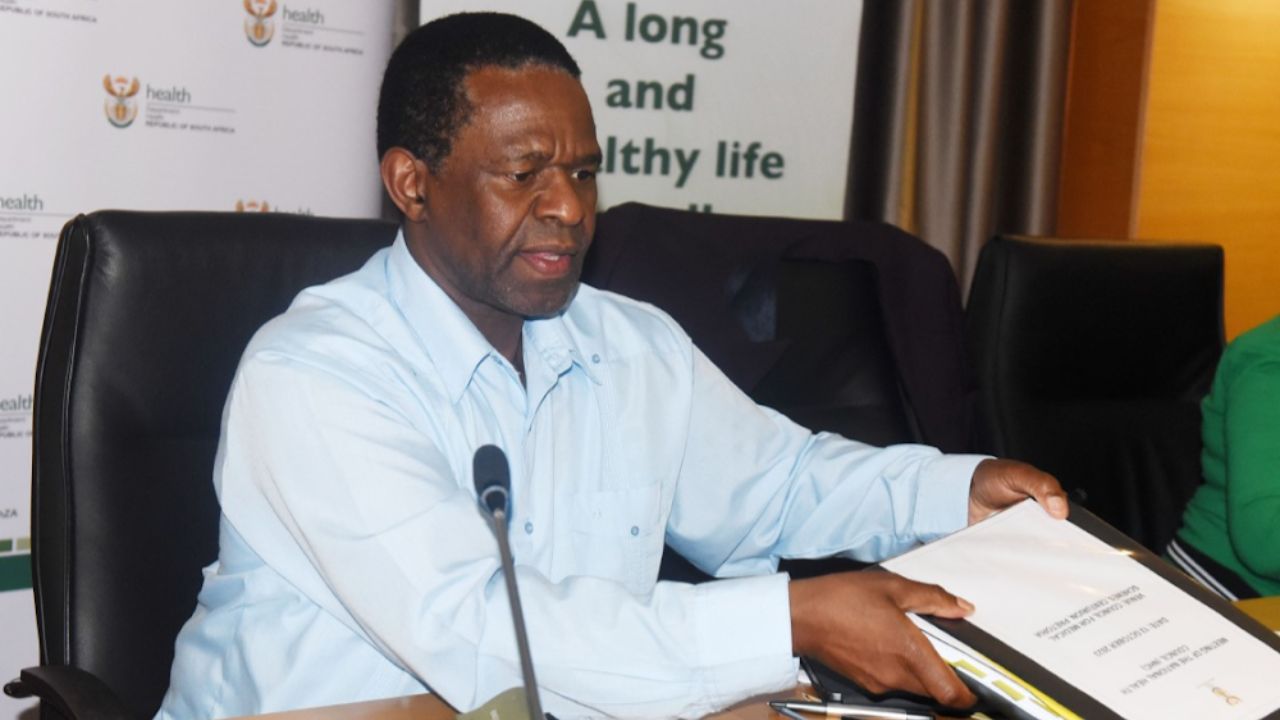Non-South Africans are only entitled to emergency medical care at public health institutions, not the full range of comprehensive health care that South Africans receive, the head of the parliament’s health portfolio committee said.
After recordings of Operation Dudula members renouncing foreigners from clinics and certain hospitals went viral on social media, Dr. Sibongiseni Dhlomo spoke to committee members on Thursday.
“When we look at the preamble of our constitution, it talks about South Africa belonging to all who live in it. That part is important and ought to be respected. But the conclusion from the National Health Insurance public hearings was that the country should provide emergency services to all — that is binding in terms of UN rules. Comprehensive health care is for South Africans,” he said.
Operation Dudula’s strategy of door-stopping people at public health institutions is incorrect, according to Dhlomo, and a more efficient approach is required to address the issue.
According to him, the organization and other stakeholders have been interacting with the health department in recent weeks. “These issues cannot be disregarded, but we need to address them differently.”
He attested that the home affairs department has been involved in talks regarding plans to examine and maybe repeal portions of important laws, including the:

- South African Citizenship Act;
- Refugees Act;
- Identification Act; and
- Immigration Act.
“Some of these acts are wide and encompassing. Maybe they should have limitations. We can’t have unlimited resources to deal with what is there in the world,” Dhlomo told the committee.
FAQs – Non-South Africans and Healthcare Access in South Africa
What did Dhlomo say about healthcare access for non-South Africans?
Dhlomo highlighted that South Africa’s public healthcare system is already under pressure, and priority should be given to South African citizens. He stated that while emergency care will still be provided, full healthcare services may not be extended to non-South Africans.
Does this mean foreigners will be completely denied healthcare in South Africa?
No, foreigners will not be completely denied care. They will still receive emergency and urgent medical treatment, but full access to public healthcare services may be limited due to resource constraints.
Why is South Africa restricting healthcare for non-citizens?
The government argues that overcrowding, limited budgets, and rising demand are straining public hospitals. Restricting full access for non-South Africans is seen as a way to protect resources for citizens.
Will refugees and asylum seekers be affected by this decision?
Yes, the policy could also affect refugees and asylum seekers who rely on public healthcare. However, the government has stated that humanitarian and emergency services will remain available.
How has the public reacted to Dhlomo’s statement?
Reactions have been mixed. Some South Africans support the move, citing fairness and resource protection, while others criticize it as xenophobic and harmful to regional cooperation.
What healthcare services will still be available for non-South Africans?
Non-citizens will continue to have access to emergency medical care, maternity services in urgent cases, and life-threatening conditions. Routine check-ups and long-term treatments may be excluded.
How does this policy impact cross-border patients?
Patients who frequently cross into South Africa from neighboring countries for treatment will face stricter access rules. This could push them toward private healthcare, which is often unaffordable.
Is private healthcare still available for foreigners in South Africa?
Yes, foreigners can still use private hospitals and clinics in South Africa, but these come at a high cost compared to public healthcare.
Does this policy align with international human rights obligations?
Critics argue that limiting healthcare for foreigners may conflict with human rights standards, which emphasize healthcare as a universal right. The South African government maintains that emergency care remains guaranteed.
What could be the long-term effects of restricting healthcare for non-South Africans?
The policy may reduce strain on public hospitals but could also increase regional health risks, damage South Africa’s international image, and raise ethical debates about healthcare access and human rights.
Hi, I’m Owen. I’m passionate about sharing the latest government aid news, benefits, and policy updates so you can stay informed and make the most of available resources. My goal is to break down complex information into clear, easy-to-understand updates that help you navigate programs and opportunities that matter to you.
